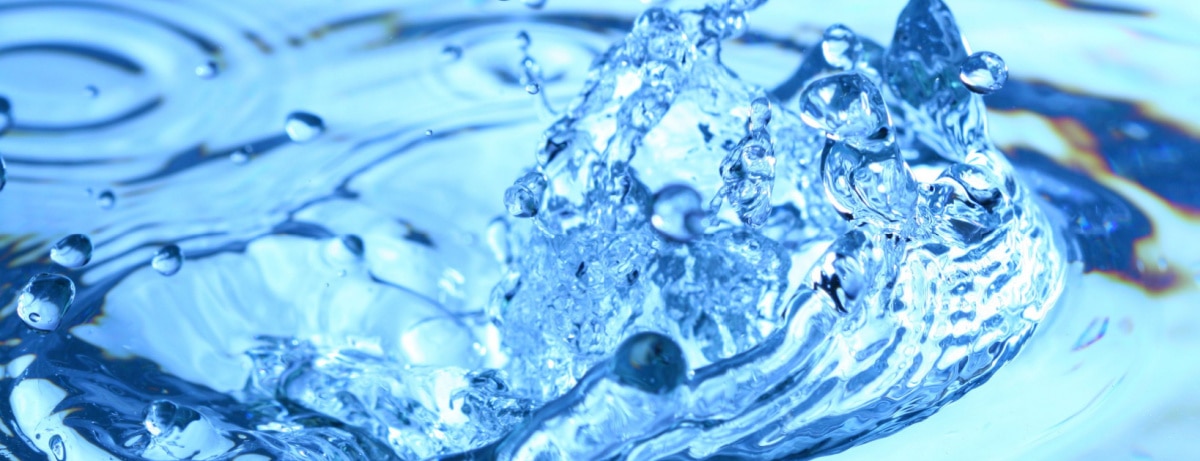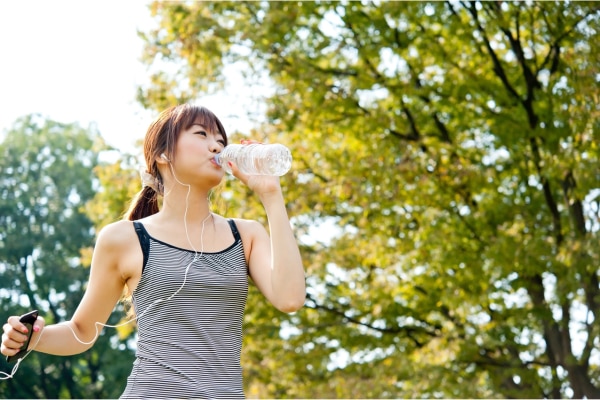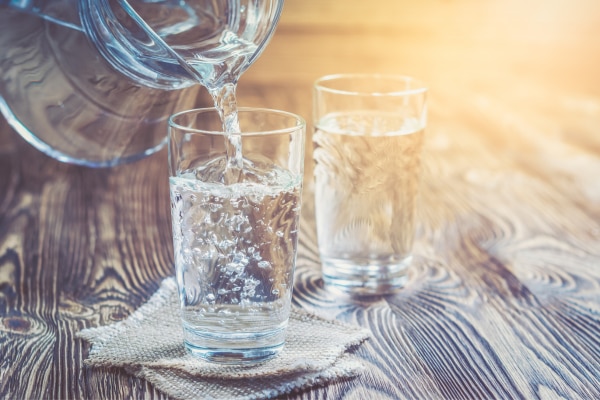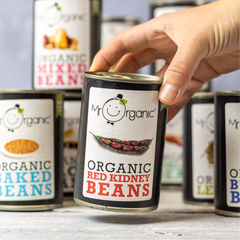B&C
|Carousel main title
Main title
The importance of hydration

We all know that we should be drinking plenty of water every day, but what is the science behind it? That’s what we’re here to discuss. We’ll explore the importance of staying hydrated when exercising, but also what it does for your body on a day-to-day basis. Discover the lowdown on hydration and its benefits, right here.
Skip to: Why is it important to stay hydrated? | Benefits of staying hydrated | 7 signs of dehydration | How to be your most hydrated self | The final say
Did you know that water makes up a whopping two thirds of our body? Therefore, it’s essential that we drink enough fluid to keep a healthy balance and avoid dehydration. But why is this so important? Maintaining a good level of hydration helps to prevent1:
-
Urinary tract infections (UTIs)
-
Headaches
-
Constipation
-
Dizziness that can lead to falls
-
Confusion
-
Kidney stones
-
Pressure ulcers/skin conditions
-
Poor health
But that’s not all. Drinking the right amount of water each day (6-8 cups) allows our body to regulate its temperature, keep our joints lubricated, prevent infections, provide our cells with nutrients and support the proper functioning of our organs.
Why do we need to be hydrated when exercising?
Why do we need to be hydrated when exercising?
Essentially, drinking enough fluids allows our bodies to function properly. And when do we put our bodily functions to the test? During exercise! Staying hydrated when working out is super important as being dehydrated makes it harder for our body to regulate heat, which then causes our body temperature and heart rate to rise. This ultimately makes us feel more tired when we need to feel energised.2


But that’s not all. Dehydration also impacts your motor control, decision making and concentration, which may then change how good you feel and how well you perform during exercise.3
Now you know why keeping hydrated is so important, you might be wondering if it offers any specific benefits… well it does! Having enough water in our body is essential for many important processes to take place, but we’ll take a closer look at some of the key benefits below:
Gut
If you’re already in the know about health and wellness, you’ve probably heard a lot of discourse on gut health. Keeping our gut happy is important for our overall wealth, but what role does hydration have to play? Some studies have shown that frequent water drinks can have a higher microbiota diversity, although where the water comes from does have an impact too.4
In addition to this, drinking plenty of water may also be able to help those with constipation, as studies suggest a link between low water consumption and issues with constipation.5
Joints, bones and muscles
We should be looking after our joints, bones and muscles all through our life, but does hydration actually have an impact? It does indeed. Drinking enough fluids, like water, helps to keep your synovial fluid topped up in your joints, which helps them to function by being appropriately lubricated.6
What’s more, water may also be important for maintaining muscle health – particularly as we age. One scientific review from 2019 explored this connection, concluded that after reviewing several studies, cell dehydration seems to have a strong impact on muscle health.7
Skin
Another potential benefit of being properly hydrated is that it may help your skin. Multiple studies have researched the link between the two, with one study from 2018 finding that drinking more water helped to reduce the appearance of dryness and roughness.8 Also, a different study from 2015 concluded that an increased water intake might have a positive impact on skin health, particularly in those who generally drink a minimal amount of water.9
Mood
Did you know that your mood may also be affected by your hydration levels? One study in young women reported that losing 1.4% of fluid after exercising impaired both their mood and concentration.10
These researchers conducted a similar study in young men found that a 1.6% loss of fluid was detrimental to their working memory and it appeared to increase anxiety and fatigue.
7 signs of dehydration
7 signs of dehydration
Want to avoid being dehydrated? That’s a good idea. Here’s some of the most common signs and symptoms you should look out for11:
1. Increased thirst
2. Dark coloured urine
3. Dizziness or light-headedness
4. Headache
5. Tiredness
6. Dry mouth, lips and eyes
7. Passing small amounts of urine infrequently (less than three or four times a day)


If your symptoms continue despite drinking fluids, or if you suspect that your baby or toddler is dehydrated – see your GP.
We’ve gone through the importance and benefits of hydration and the signs of dehydration… so what can you do to boost your hydration levels? Here’s how to be your most hydrated self:
- Drink 6-8 cups a day – the number one way to be hydrated is to drink enough fluid, pretty easy right? The NHS recommend that you drink 6-8 cups per day, but also highlight that water is a healthy and cheap option12
- Use electrolytes – these are minerals that conduct electricity when dissolved in water. They’re crucial for managing your fluid balance, regulating blood pressure, supporting your muscles and your blood acidity.13 In particular, electrolytes may be beneficial for people partaking in sports where they lose a lot of sweat.14
- Set reminders – if you’re someone who often forgets to hydrate themselves, then it might be worth setting reminders on your computer or phone so that you can stay on top of your water intake.
- Eat foods with high water contents – struggle to hit the recommended water intake? Opting for foods with high levels of water, like watermelon, cucumber, lettuce and tomatoes might help you on the road to hydration.15
Good hydration is vital for maintaining our health and allowing our bodies to perform at their best, so remember to keep sipping on fluids throughout each day and aim for around 6-8 cups.
1. https://www.nhsinform.scot/campaigns/hydration
2. https://www.hsph.harvard.edu/news/hsph-in-the-news/the-importance-of-hydration/
3. https://healthcare.utah.edu/healthfeed/2017/03/tough-workouts-you-could-be-dehydrated
4. https://healthcare.utah.edu/healthfeed/2017/03/tough-workouts-you-could-be-dehydrated
5. https://pubmed.ncbi.nlm.nih.gov/34642755/
6. http://www.ncbi.nlm.nih.gov/pmc/articles/PMC4325863
7. https://www.arthritis.org/health-wellness/healthy-living/nutrition/healthy-eating/best-drinks-for-arthritis
8. https://www.ncbi.nlm.nih.gov/pmc/articles/PMC6723611/
9. https://pubmed.ncbi.nlm.nih.gov/29392767/
10. https://www.ncbi.nlm.nih.gov/pmc/articles/PMC4529263/
11. https://academic.oup.com/jn/article/142/2/382/4743487
12. https://www.cambridge.org/core/journals/british-journal-of-nutrition/article/mild-dehydration-impairs-cognitive-performance-and-mood-of-men/3388AB36B8DF73E844C9AD19271A75BF
13. https://www.nhsinform.scot/illnesses-and-conditions/nutritional/dehydration#symptoms-of-dehydration
14. https://www.nhs.uk/live-well/eat-well/food-guidelines-and-food-labels/water-drinks-nutrition/
15. https://medlineplus.gov/ency/article/002350.htm
16. https://www.ncbi.nlm.nih.gov/pubmed/26920240
17. https://cicoa.org/10-hydrating-fruits-and-vegetables/










